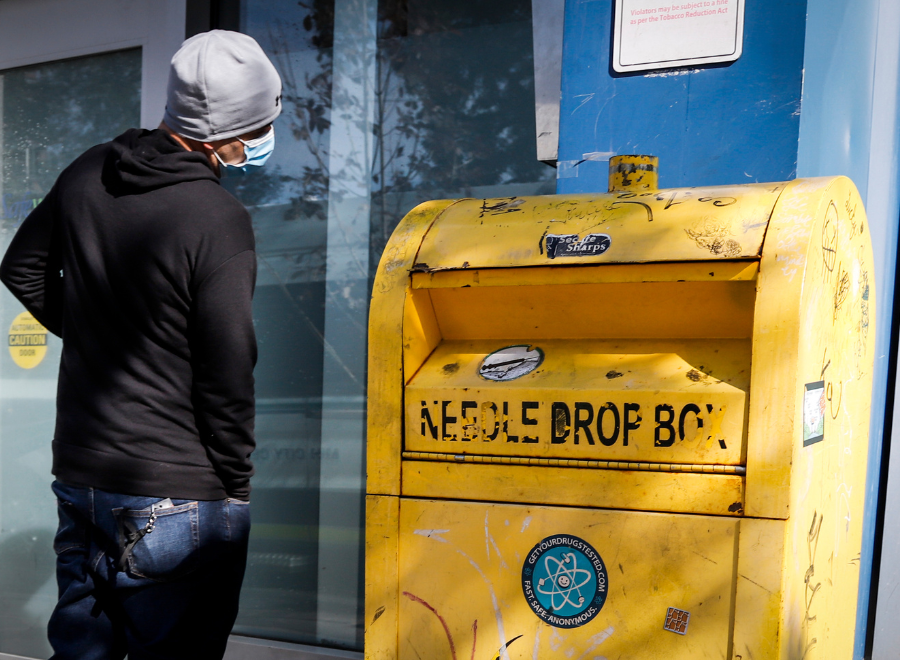Introducing Moral Compass, a regular advice column answering ethical dilemmas through a Christian lens. Do you have a question for ethicist Ashley Moyse? Send it to general@broadview.org
***
You may unsubscribe from any of our newsletters at any time.
Q: I support supervised safe consumption sites, but I don’t want to live near one. How do I deal with this? —Worried Neighbour
A: Dear Worried Neighbour, I’ve been reading writer and farmer Wendell Berry’s essay “In Distrust of Movements,” where he critiques social movements that remain disconnected from the lived realities of the communities they aim to help. Your hesitation about living near a supervised consumption site mirrors this common tension: supporting an idea in principle but feeling unsure about its impact on your immediate environment.
First, let’s examine “support.” The word comes from the Latin sub (below) and portare (to carry). This etymology speaks to more than theoretical endorsement. It speaks to practical involvement, to bearing something from underneath — taking on the weight of responsibility.
This meaning is familiar to the Christian; supporting the burden of others is central to a Christian moral life and to genuine fellowship. It’s in accepting the discomfort and burden of another that we recognize a neighbour, rather than an object of charity or manipulation. When we carry the burdens of our community, as Christ bore humanity in his living and dying, we participate in the same self-giving love that fulfils the law of Christ.
More on Broadview:
Advocating for safe injection sites from afar may seem right, but it disconnects us from this deeper act of compassion that “support” helps us to see.
While supporting, though, we ought not to dismiss the risks. Well-meaning attempts to help do not guarantee success. What if your resources are insufficient or your compassion leads to harm? Your question already, and rightly, implies an awareness of such risk. Compassionate support must also be met with a realistic understanding of our limits. Not every burden can be easily borne, and not every act of care yields the desired results.
Support, therefore, involves accepting the discomfort and complexities of communal life, a reality underscored by Berry’s critique of movements disconnected from the lived experiences they seek to impact. Living near a supervised consumption site invites you to embody support not as a distant ideal but as a practice rooted in shared responsibility for your neighbours.
So after reading Berry and reflecting on the practice of bearing burdens, I must insist that support of place and people means carrying the weight of our convictions in local, sustained and realistic ways. Such support must also be accompanied by humility — an understanding that compassion, while noble, is fraught with limits and risks.
***
Ashley Moyse is a Canadian ethicist, theologian and assistant professor of medical ethics at Columbia University in New York City.
This article first appeared in Broadview’s January/February 2025 issue with the title “What If I Don’t Want to Live Near a Safe Consumption Site?”















I worked in the Downtown Eastside of Vancouver in a building a stones throw from InSite, Canada’s first public safe injection site. It has been a neighbourhood in crisis for decades, where pimps and dealers exploit the addicted in horrible ways.
Before InSite opened the alley across from my office served as one of many very unsafe injection sites. Ambulances attended multiple times every single day. A client, seeing this reality for the first time, was at first unbelieving as I described what we were watching, and then after watching a little longer asked if he could return next week with his family.
Since opening in 2003 there has not been a single fatality at InSite. It is a remarkable record that has stood despite the transition from heroine to the much more dangerous fentanyl.
Your reader’s neighbourhood likely looks much different, and the addicted who walk its streets do so unrecognised, and yet in truth we all live near an unsafe injection site and most likely know people who are dealing with addiction.
I am sympathetic to the uneasiness your reader expressed, and recognise it was brave to admit their conflicted feelings. I would ask that they consider their feelings when the inevitable happens and an ambulance visits their neighbourhood for someone they know.